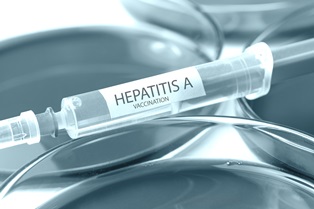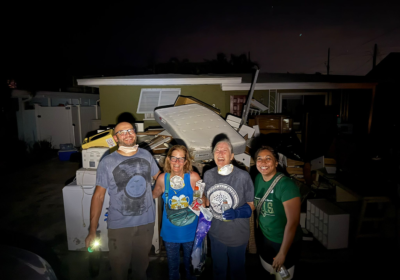USF Health works to prevent spread of hepatitis A

With the rise in hepatitis A, USF Health is taking matters into its own hands.
USF Health partnered with the Hillsborough Health Department last week to offer free hepatitis A and human papillomavirus (HPV) vaccines for individuals who are underinsured or have no insurance.
Along with a similar event that took place in November, the main goal was to educate people about the viruses and provide an opportunity to receive the vaccinations.
There were 51 vaccines given for hepatitis A and 43 for HPV at the event on Feb. 12.
According to Student Health Services Director Joseph Puccio, there has been an upswing in the number of hepatitis A cases in Central Florida.
A study done by Florida Health showed that there are more than 22,000 cases of hepatitis A in the U.S. and more than 2,500 cases in Florida since 2018.
In Florida, Tampa has had the most reported cases, according to the Tampa Bay Times. Two local restaurants had to shut down last year because of food workers with hepatitis A.
Long term complications of hepatitis A can lead to severe liver disease and could even cause death.
“Hepatitis A is a viral illness that has various different roots that can be spread,” said Puccio. “One of the most common roots is eating fruits and vegetables that may be infected or sometimes if there is a food service employee that may be infected and if they don’t know, the virus could be passed on at restaurants.”
Anyone is at risk of contracting hepatitis A, but there are specific groups with slightly higher risks.
“Some of the groups that are at a higher risk are people that have liver disease or any kind of chronic medical conditions, people that are housing insecure, men who have sex with men and individuals who use any kind of drugs,” said Puccio.
To be fully immunized against hepatitis A, there need to be two shots administered within a six-month grace period after the first one.
The initial dose will provide immunity to hepatitis A for about one year, while the second dose provides long-term immunity for years.
At the event, most of the individuals who received the vaccination had their first shot. If documentation was provided to show that it was time for their second shot, they were then eligible to receive it.
The Gardasil vaccine, used to treat HPV, prevents infections such as genital warts and also potential cancer.
“HPV is a sexually transmitted infection, so it could be transmitted through sex and if people are not using protection or unaware that their partner may have it, it could be very easily transmitted,” said Puccio. “If a person is sexually active, they are at potential risk of being infected.”
One of the main goals is to vaccinate people before they are sexually active to avoid the risk of potentially becoming affected by the virus. The age range of college students is a good time for the vaccination, according to Puccio.
“If you did not complete the series, even if you are sexually active, it is still always worth getting vaccinated because you may have gotten infected with one, but there is still protection from another eight that you can receive,” said Puccio. “So if you have ever been told that you have HPV, that’s not an exclusion from getting vaccinated.”
Puccio said major medical associations, such as the American Academy of Family Physicians (AAFP), the American Academy of Pediatrics (AAP), the American College of Physicians (ACP), and American College of Obstetricians and Gynecologists (ACOG), along with health departments from Hillsborough, Pinellas, Sarasota and Manatee counties have been supportive of the immunizations and education of these viruses.
“I think the most important thing is to talk about the importance of making sure that they’re vaccines are up to date,” said Puccio. “The HPV vaccination can prevent cancer and hepatitis A can prevent you dying from liver disease, so it’s important to say that there are ways to prevent this from happening. ”







